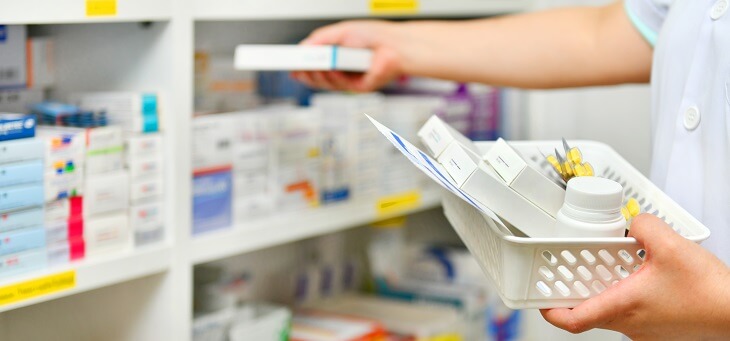Australia is facing a huge medicine shortage, with more than 300 drugs in short supply.
Doctors and pharmacists are warning the nation has a “dire” medicine shortage on its hands. So far, 320 drugs are listed by the Therapeutic Goods Administration (TGA) as being in short supply, with another 80 anticipated to be added to that list.
Drugs for diabetes, hormone replacement therapy, depression, nausea and stroke are all either scarce or becoming so.
The Pharmacy Guild of Australia (PGA) is also reporting shortages of over-the-counter cold and flu medications and supermarkets are seeing shortages of products such as Lemsip.
Read: What is the PBS Safety Net and how does it work?
The supply shortfalls are primarily due to COVID-impacted medicine supply chains, but president of the Royal Australian College of General Practitioners (RACGP), Dr Karen Price, told The Guardian that supply constraints had been apparent for years before the pandemic hit.
“There’s many drugs that we’re now encountering that people are unable to get, and that’s a big issue for Australia,” she says.
“For a developed nation, it is pretty dire, and medicines are not easily substituted between each other.
“We do have to look at this more broadly at a strategic level in terms of what our local manufacturing is, our capacity, and also from a risk management point of view with logistics and supply chain experts so that we don’t have to go into a reactive situation or patients go without.”
Read: Our supply chain is strong but medicine imports the ‘weakest link’
Local manufacturing of medicines has been brought into sharp focus over the past two years.
Australia infamously lagged months behind other developed nations when it came to vaccinating the population against COVID, due in part to a lack of suitable local manufacturing facilities.
Late last year, the then federal government introduced the Medicines Supply Security Guarantee (MSSG), an agreement with manufacturers of drugs listed on the Pharmaceutical Benefit Scheme (PBS) and due to come into effect in July 2023.
The MSSG compels drug companies to reserve a certain amount of stock onshore in Australia (usually between four and six months’ supply) in return for price rises across 900 drugs.
Read: Free COVID RAT program to finish at end of month
“The MSSG is designed to better protect Australian patients, pharmacists and prescribers from the impact of the increasing number of medicine supply shortages and interruptions, both globally and domestically,” said Greg Hunt, then federal health minister.
But the agreement does nothing to address shortages being faced now. Acting PGA president Nick Panayiaris says while the agreement is welcome, Australia will still be reliant on overseas manufacturers.
“There is a whole sovereign risk issue here,” he says.
“We used to be great manufacturers of medication in the country. Unfortunately, more and more of that has been lost, especially the generic medicine industry.
“So, the government needs to seriously look at this, because they’re not just any commodity, they are essential medicines, which basically keep people alive.”
If you enjoy our content, don’t keep it to yourself. Share our free eNews with your friends and encourage them to sign up.

